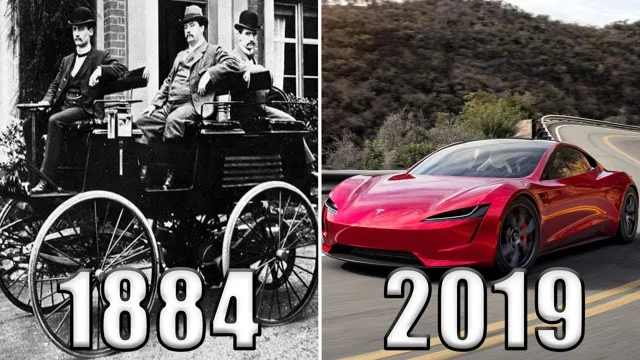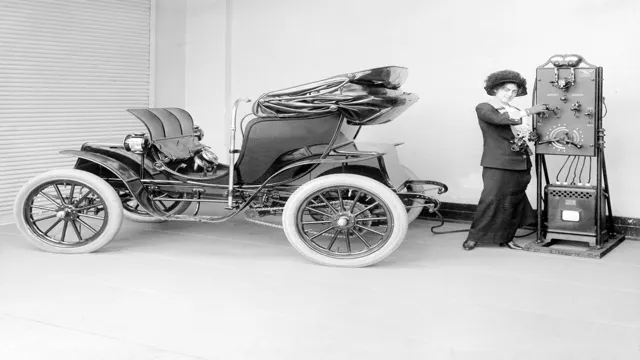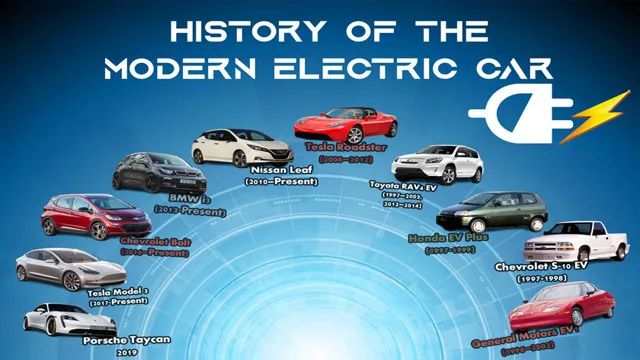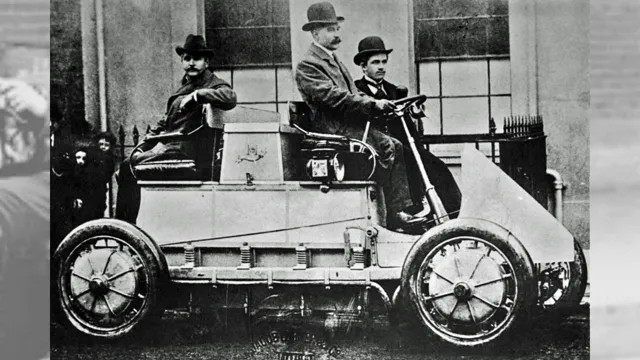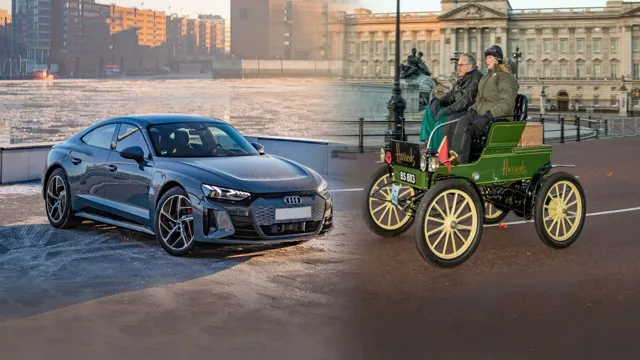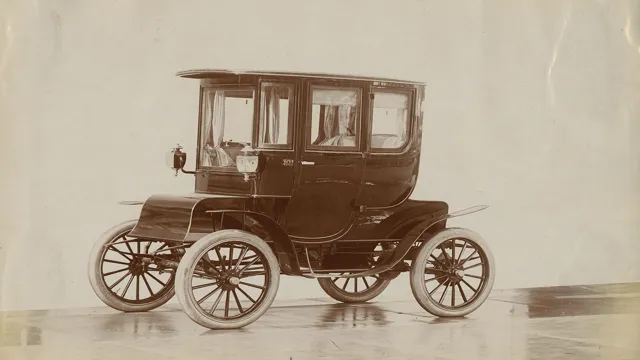The Electrifying Story of Electric Cars: From Concept to Reality
Electric cars have been at the forefront of discussions about sustainable transportation for decades, and they are finally becoming a mainstream reality. The concept of electric cars has been around since the 1830s, but technological advancements and climate change concerns have propelled electric vehicles into the popular market. From the early attempts at electric cars to the modern versions we see today, the history of electric cars is full of innovation and progress.
In this blog, we will explore the concept and evolution of electric cars, from early experiments to modern-day marvels. We will delve into the rich history of electric vehicles and examine the development of electric car technology. Are you ready to take a ride through time and discover the fascinating history of electric cars? Let’s get started!
Early Concept of Electric Cars
Electric cars have been around since the late 1800s, with early prototypes and concept designs being developed by inventors and engineers such as Thomas Davenport and Robert Anderson. These early versions of electric cars were powered by batteries and had limited range and speed. However, they still proved to be popular among a small group of enthusiasts who appreciated their quiet operation and lack of emissions.
Despite their limitations, the early concept of electric cars laid the groundwork for future innovations in electric vehicle technology. Today, electric cars have become much more practical and efficient, with advances in battery technology and charging infrastructure making them a viable option for many drivers. It’s fascinating to see how this early concept of electric cars has evolved over time, and it’s exciting to think about what innovations will come next in the world of electric vehicles.
Invention of the Electric Carriage
Electric Carriage The concept of electric cars is not as new as one might think. In fact, the idea dates back to the 1830s when Robert Anderson, a Scottish inventor, developed the first crude electric carriage. However, it wasn’t until the late 19th and early 20th centuries that electric cars gained popularity due to technological advances in batteries and electric motors.
Electric carriages were seen as an alternative to steam-powered and gasoline-fueled vehicles, which were noisy and polluting. Electric carriages were also seen as the perfect transportation choice for women, as it was easy to operate and didn’t require any physical strength to start the engine, as was the case with gasoline engines. However, the cost of production and batteries remained high, which limited the number of electric carriages produced.
Despite this, the development of electric carriages played a huge role in paving the way for the electric vehicles we see today.
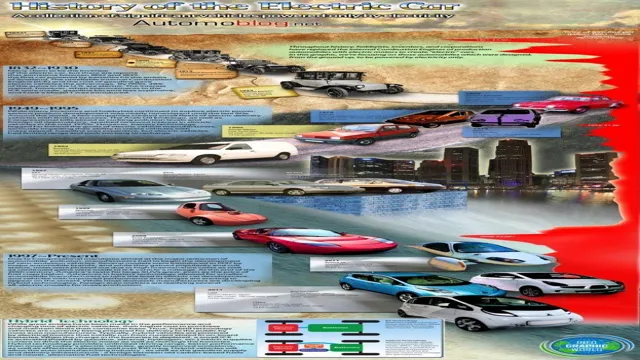
Development of Electric Cars in the 19th Century
Electric Cars Electric cars have been around for over a century, with their early prototypes dating back to the late 19th century. While commercial success took a long time, the early concept of electric cars was successful in proving the feasibility of electric power for automobiles. In 1834, a British inventor named Thomas Davenport invented the first electric motor, and his invention served as the foundation of the first-ever electric car prototype built by Thomas Parker in 188
Unlike gas-powered vehicles that required hand-crank to start the engine, the electric car was quicker and easier to start, and it didn’t emit any harmful gases, making it an instant hit with environmental enthusiasts. While the early electric car prototypes were slow and had limited ranges, it became clear that electric cars were an ideal solution for urban transportation. The development of electric cars in the 19th century, while relatively unknown, laid the groundwork for the eventual mainstream embrace of electric vehicles.
First Generation of Electric Cars
Electric cars may seem like a new concept, but the truth is that their history dates back to the late 19th century. The first generation of electric vehicles emerged as an alternative to gasoline-powered cars. One of the earliest electric cars was developed by Thomas Parker in 1884, and by the early 1900s, electric vehicles were considered a viable option for transportation.
However, limited battery capacity and the high cost of production made them less popular in comparison to their gas-powered counterparts. The development of more advanced battery technology in the later years has made electric cars more efficient and affordable. Nowadays, electric cars have become increasingly popular due to a growing concern for the environment and the need for more sustainable transportation options.
With new innovations and the ongoing efforts to reduce carbon emissions, electric cars are quickly moving from a niche market to mainstream adoption.
Introduction of Practical Electric Cars in the 20th Century
The introduction of practical electric cars in the 20th century saw the emergence of the first generation of electric cars. These vehicles were propelled by an electric motor and powered by rechargeable batteries. The first generation of electric cars saw limited success due to various reasons such as their limited range, high cost, and lack of charging infrastructure.
However, they did find use in specific applications such as urban delivery and postal services. Moreover, the noiseless and clean operation of these electric cars made them popular with the public. Many automobile manufacturers such as General Motors, Ford, and AMC also experimented with electric cars during this period.
The first generation of electric cars paved the way for further developments in electric car technology, leading to the current generation of electric cars that are much more advanced and widely used.
The Rise and Decline of Electric Cars in the Early 1900s
In the early 1900s, the first generation of electric cars was introduced to the world. These vehicles were quiet, clean, and easy to operate, making them a popular choice among urban residents who needed a reliable mode of transportation for short trips. Many prominent figures, including Thomas Edison and Henry Ford, believed that electric cars would be the future of the automotive industry, but unfortunately, the technology was not yet advanced enough to make them practical for long-distance travel.
Despite their popularity, electric cars were eventually overshadowed by the more practical and cheaper gasoline-powered vehicles, leading to their decline in the early 1920s. However, with the advancements in technology and growing concerns about climate change and air pollution, electric cars are making a comeback in the 21st century, proving that sometimes the future takes a little longer than expected to arrive.
Electric Car Innovations in the Mid-20th Century
In the mid-20th century, the first generation of electric cars was born, and it was undoubtedly a groundbreaking era for the automotive industry. Electric car innovators started with basic designs and gradually progressed to sophisticated models, leaving their mark on the history of automobile engineering. The first electric vehicles had lead-acid batteries with a low driving range of around 50 miles, and there were many technological challenges to overcome.
However, advancements in battery technology, coupled with the introduction of lightweight materials, led to the production of faster, more efficient electric cars. The integration of regenerative braking systems, which allowed electric cars to recover energy lost during braking, also proved to be a significant step in the right direction. All these innovations laid the foundation for the current fleet of electric cars that boast impressive performance and eco-friendliness.
Modern Electric Cars
Electric cars have a rich history and their concept can be traced back to the 1800s. However, it wasn’t until the 1990s that modern electric cars began to make their mark on the automotive industry. In 1996, General Motors introduced the EV1, which was the first mass-produced electric car.
Unfortunately, production was short-lived due to lack of demand from consumers and pressure from oil companies. Fast forward to today, and electric cars have become increasingly popular as people become more environmentally conscious and EV technology continues to advance. They are no longer seen as quirky or niche, but rather as practical and efficient alternatives to traditional gas-powered vehicles.
The concept of electric cars has come a long way since its inception, and it will be interesting to see what the future holds in terms of innovation and sustainability.
The Revival of Electric Cars in the 21st Century
Electric cars have truly made a comeback in the 21st century, and modern technology has made it possible for them to be more efficient and cost-effective than ever before. With advancements in battery technology, electric cars can now travel longer distances on a single charge. Additionally, growing concerns about the environment have made electric cars an attractive alternative to traditional gas-guzzling vehicles.
Not only are electric cars better for the environment, but they can also save drivers a considerable amount of money in fuel costs over time. Another advantage of electric cars is that they have fewer moving parts, which means they require less maintenance and are less prone to breakdowns. With all these advantages, it is no wonder that electric cars are becoming increasingly popular among consumers.
Environmental and Economic Benefits of Electric Cars
Modern electric cars offer numerous environmental and economic benefits compared to traditional gasoline-powered vehicles. Firstly, they emit low or zero greenhouse gases, which helps to reduce air pollution and contribute towards mitigating climate change. Additionally, electric cars are more energy-efficient and cost-effective to run since they require less maintenance and have lower fuel costs.
These savings can translate into significant economic benefits, particularly for individuals and businesses that rely heavily on transportation. Moreover, electric cars can help to reduce dependence on fossil fuels and promote the adoption of renewable energy sources since they can be charged using renewable energy like solar or wind power. Ultimately, modern electric cars offer a more sustainable and responsible alternative to traditional vehicles that accessibly combines environmental and economic benefits.
The Future of Electric Cars
Electric cars have come a long way since the concept was first introduced in the 1800s. Although they were initially slow and impractical, advancements in technology have made them a viable option for mainstream transportation. The history of electric cars is characterized by innovation and experimentation, with several different designs being tested over the years.
However, it wasn’t until the 1990s that electric cars began to gain popularity with consumers. In recent years, we have seen a surge in the demand for electric cars as more people become concerned about the environment and the impact of traditional vehicles on air quality. With technological advancements such as longer battery life and faster charging times, it’s likely that electric cars will continue to grow in popularity in the years ahead.
It’s an exciting time for the future of transportation, and electric cars are sure to play an important role in shaping it.
Conclusion
In conclusion, the electric car has come a long way from its humble beginnings as a slow and clunky vehicle to its current sleek and sustainable state. The concept and history of electric cars have been marked by innovation, perseverance, and a commitment to a better future. From the early days of electric cars to the current modern era, we have seen a revolution in technology that has transformed our world and our environment.
And as we look ahead to the future, it’s clear that electric cars will continue to be at the forefront of sustainable transportation, helping to create a cleaner and more sustainable world for generations to come. So, let’s charge forward into the future and embrace the power of the electric car!”
FAQs
What is the history of electric cars?
The first electric car was invented in the 1830s, and electric cars were popular until the early 20th century when gasoline engines became more common. However, in recent years, electric cars have made a comeback due to concerns about climate change and air pollution.
How do electric cars work?
Electric cars are powered by an electric motor that draws electricity from a battery. The battery is recharged by plugging the car into an electrical outlet or charging station. Unlike gasoline engines, electric motors provide instant torque, which contributes to their quick acceleration.
What is the concept of range anxiety?
Range anxiety is the fear or stress that electric car owners may experience when their vehicle’s battery is running low and they don’t know if they will be able to find a charging station before the battery dies. This has been a major concern for some potential electric car buyers.
How long do electric car batteries last?
The lifespan of an electric car battery depends on many factors, including the type of battery, how often the car is charged, and the climate in which it is driven. However, most electric car batteries are designed to last for at least 100,000 miles, and some can last up to 300,000 miles or more.
